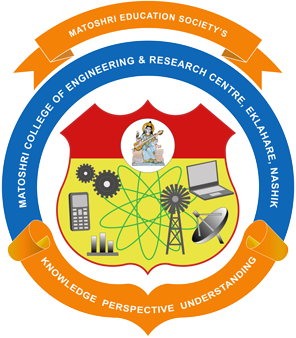- Possess strong fundamental concepts in mathematics and statistics,science and technology to address technological challenges.
- Possess knowledge and skills in the field of Computer Science,Information Technology and Artificial Intelligence and Data Science for analyzing,designing and implementing complex engineering problems of any domain with innovative approaches.
- Possess an attitude and aptitude for research,entrepreneurship and higher studies in the field of Artificial Intelligence and Data Science
- Have commitment to ethical practices,societal contributions through communities and life-long learning.
- Possess better communication,presentation,time management and team work skills leading to responsible & competent professionals and will be able to address challenges in the field of Artificial Intelligence and Data Science at global level.
- Apply the fundamentals of mathematics and statistics, science and engineering knowledge to understand, analyze and develop computer programs and applications in the areas related to Artificial Intelligence, Data Science, Soft computing, Algorithms, Multimedia, Robotics, and Networking for efficient design of intelligent systems of varying complexity.
- Apply appropriate techniques and modern engineering hardware and software tools for the design and integration of computer/ intelligent system and related technologies, to engage in lifelong learning for the advancement of technology and its adaptation in multi-disciplinary environments.
- Implementation of professional engineering solutions for the betterment of society keeping the environmental context in mind, be aware of professional ethics and be able to communicate effectively.
Learners are expected to know and be able to–
-
Engineering Knowledge:
Apply the knowledge of mathematics, science, Engineering fundamentals, and an Engineering specialization to the solution of complex Engineering problems. -
Problem Analysis:
Identify, formulate, review research literature, and analyze complex Engineering problems reaching substantiated conclusions using first principles of mathematics natural sciences, and Engineering sciences. -
Design/Development of Solutions:
Design solutions for complex Engineering problems and design system components or processes that meet the specified needs with appropriate consideration for the public health and safety, and the cultural, societal, and Environmental considerations. -
Conduct Investigations of Complex Problems:
Use research-based knowledge and research methods including design of experiments, analysis and interpretation of data, and synthesis of the information to provide valid conclusions. -
Modern Tool Usage:
Create, select, and apply appropriate techniques, resources, and modern Engineering and IT tools including prediction and modeling to complex Engineering activities with an understanding of the limitations. -
The Engineer and Society:
Apply reasoning informed by the contextual knowledge to assess societal, health, safety, legal and cultural issues and the consequent responsibilities relevant to the professional engineering practice. -
Environment and Sustainability:
Understand the impact of the professional Engineering solutions in societal and Environmental contexts, and demonstrate the knowledge of, and need for sustainable development. -
Ethics:
Apply ethical principles and commit to professional ethics and responsibilities and norms of the Engineering practice. -
Individual and Teamwork:
Function effectively as an individual, and as a member or leader in diverse teams, and in multidisciplinary settings. -
Communication:
Communicate effectively on complex Engineering activities with the Engineering community and with society at large, such as, being able to comprehend and write effective reports and design documentation, make effective presentations, and give and receive clear instructions. -
Project Management and Finance:
Demonstrate knowledge and understanding of the Engineering and management principles and apply these to one’s own work, as a member and leader in a team, to manage projects and in multidisciplinary Environments. -
Lifelong learning:
Recognize the need for and have the preparation and ability to engage in independent and life-long learning in the broadest context of technological change.
